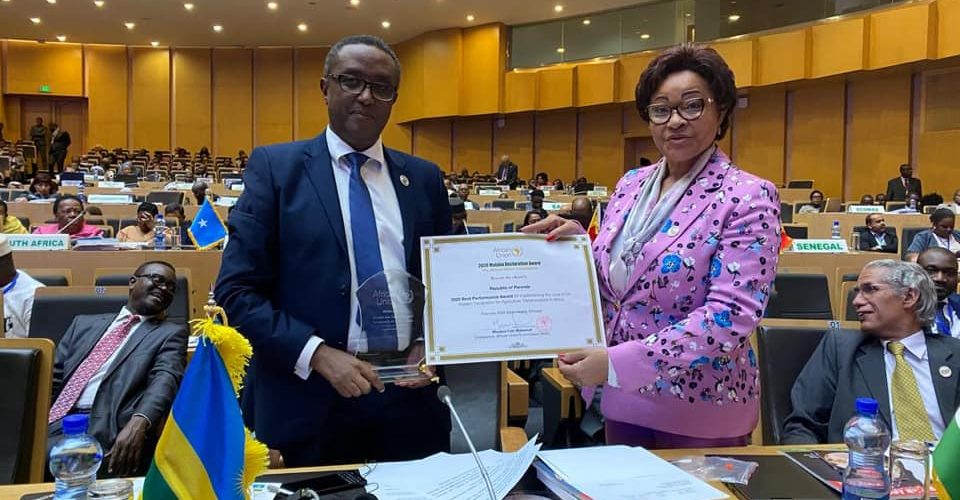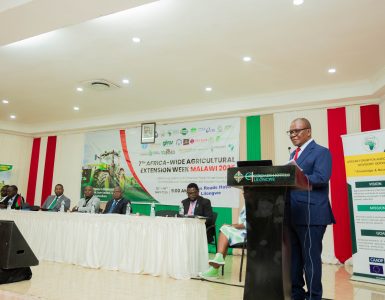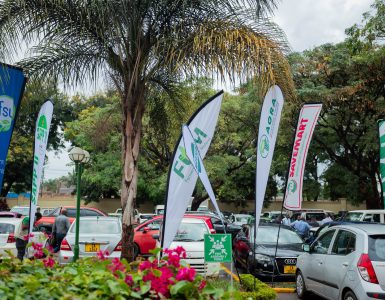By Grace Musimami
The African Union Commission has released and launched the Second Biennial Review Report on implementation progress on the 2014 Malabo Declaration on Accelerated Agricultural Growth and Transformation for Shared Prosperity and Improved Livelihoods, the report was released after consideration by the heads of state at the recently concluded African Union Assembly of Heads of state and government in Addis Ababa, Ethiopia. .
H.E Abiy Ahmed Ali, Ethiopian Prime Minister and AU Leader of the Comprehensive Africa Agriculture Development Programme (CAADP), presented the Biennial Review Report to the AU Assembly of Heads of State and Government.
According to her Excellency Amb. Josefa Sacko Commissioner for Department of Rural Economy and agriculture at the union, the report indicated great improvement among many countries that had gotten on track with implementation.
“The BR Report is a performance assessment tool as well as an advocacy tool to guide planning and decision making for Africa’s Agricultural Transformation. It’s a report detailing Africa’s Agricultural implementation status; 36 countries have made tremendous progress from the first cycle and we believe this improvement puts us on track as a continent.” Said Josefa.
Ambassador Josefa adds that Out of the forty-nine (49) Member States that reported on progress in implementing the Malabo Declaration during this 2019 biennial review cycle, four countries are on-track towards achieving the Malabo commitments by 2025 , she says While this number is significantly less than the 20 Member States that were on-track in 2017 during the inaugural biennial review cycle, it was cardinal to note that 36 countries have made significant improvement in their score from the first Biennial Review report to the second biennial report.
The benchmark for the 2019 cycle 6.66, is much higher than that of the 2017 cycle which was 3.94. The four Member States, which obtained or surpassed the benchmark of 6.66 to be on-track toward achieving the commitments of the Malabo Declaration by 2025 are Rwanda (7.24), Morocco (6.96), Mali (6.82) and Ghana (6.67).
The document captures the continent’s agricultural progress based on a pan-African data collection exercise led by the African Union Commission’s Department of Rural Economy and Agriculture (DREA), AUDA-NEPAD and Regional Economic Communities in collaboration with technical and development partners. Member States were assessed on the seven commitments in the Malabo Declaration, across 47 indicators.
Analysis of the reports shows that the continent remains off-track in achieving the overall Malabo Declaration commitments, obtaining an overall score of 4.03 compared to the benchmark of 6.66 to be on-track.
The continent lost its traction in Recommitment to the CAADP Process, Halving Poverty through Agriculture, and Mutual Accountability for Action and Results.
Regarding Commitment 5 on Boosting Intra-African Trade in Agriculture Commodities, 29 countries are on track even though the continent as a whole is not on track.
Only four countries Burkina Faso, Burundi, Mali and Mauritania met the target of spending at least 10 percent of the total national expenditure on agriculture.
The report tracks progress in commitments made by AU Heads of State and Government through CAADP and the Malabo Declaration to increase prosperity and improved livelihoods for transforming agriculture. The indicators chosen to track the performance categories were defined on the basis of the strategic objectives derived from the Malabo Declaration.
This Second Biennial Review Report builds on the efforts of the first round and tracks the performance of countries on each of the 47 indicators (four more than in the inaugural report) that shows the performance of the continent towards a fully transformed agricultural sector. Considerable efforts have gone into improving the quality of the data, with more countries reporting in this round, and there is an overall positive trend in the performance of countries, even though only four countries achieved the required milestone to be on-track. This trajectory should be maintained, and the rate of progress accelerated, while measures are put in place to address weaknesses.
“The report shows that there is still a lot to be done in the march towards the transformation of the agricultural sector in Africa. We should collectively sustain the momentum, undertake bolder and deeper initiatives to accelerate the rate of progress, and ensure that agriculture contributes to the goals and targets set by Heads of State and Government by 2025,” adds Dr. Godfrey Bahigwa Director at the Department of Rural Economy and Agriculture,
Background
In January 2018, the African Union Commission presented the Inaugural Biennial Review Report on the Implementation of the 2014 Malabo Declaration on Accelerated Agricultural Growth and Transformation for Shared Prosperity and Improved Livelihoods to the African Union Assembly of Heads of State and Government in Addis Ababa, Ethiopia. This was in response to the call made by the Heads of State and Government for a monitoring report to be produced every two years, starting from 2017. The launch of the Inaugural Report was an important milestone for Africa, and it generated considerable interest among the AU Member States because it showed the absolute and relative performance of countries on the seven commitments in the Malabo Declaration.
The Malabo Declaration provides the direction for Africa’s agriculture transformation for the period 2015 – 2025, within the framework of the Comprehensive Africa Agriculture Development Programme (CAADP), as a vehicle to contribute to the achievement of the objectives of the First Ten Year Implementation Plan of Africa’s Agenda 2063. The tracking, monitoring, and reporting on implementation progress towards achieving the goals and targets of the Malabo Declaration is an important mechanism to ensure that there is political will, backed by appropriate actions, to achieve agricultural growth and transformation on the continent by 2025 for improved livelihoods and shared prosperity for African citizens.
The Inaugural Biennial Review Report showed that 20 out of 47 countries that reported were on-track towards achieving the goals and targets in the Malabo Declaration by 2025. The launch of the report generated a positive response from the AU Member States which showed eagerness to see an improvement in their respective aggregate scores. Subsequently, countries requested support to improve their capacities to collect and analyze data to track the indicators in the biennial review process. This support was provided by the African Union Commission and the AU Development Agency (AUDA-NEPAD) with support from various technical institutions and experts.
Improved capacities for better data collection and analysis are very important in this process. However, the data collected and analyzed should reflect the result of country-level actions in terms of appropriate policies, regulatory and institutional arrangements for effective implementation of agricultural and food and nutrition security programs and projects. This calls for a renewed urgency for the domestication of the Malabo Declaration National Agriculture Investment Plans (NAIPs) and Regional Agriculture Investment Plans (RAIPs). Effective implementation of these plans should lead to the desired outcomes and impact, which in turn should be reflected in the improvement of the individual country scores, and thus the overall performance of the agricultural sector in the continent.
The report is the result of a collaborative effort of the AU Member States, Regional Economic Communities (RECs) and several technical organizations and individuals, under the leadership of the African Union Commission and the African Union Development Agency – NEPAD. Through this report, we are pleased to provide the current status of the progress made by the Members States of the Union in implementing the Assembly Decision in the CAADP Malabo Declaration.





Add comment